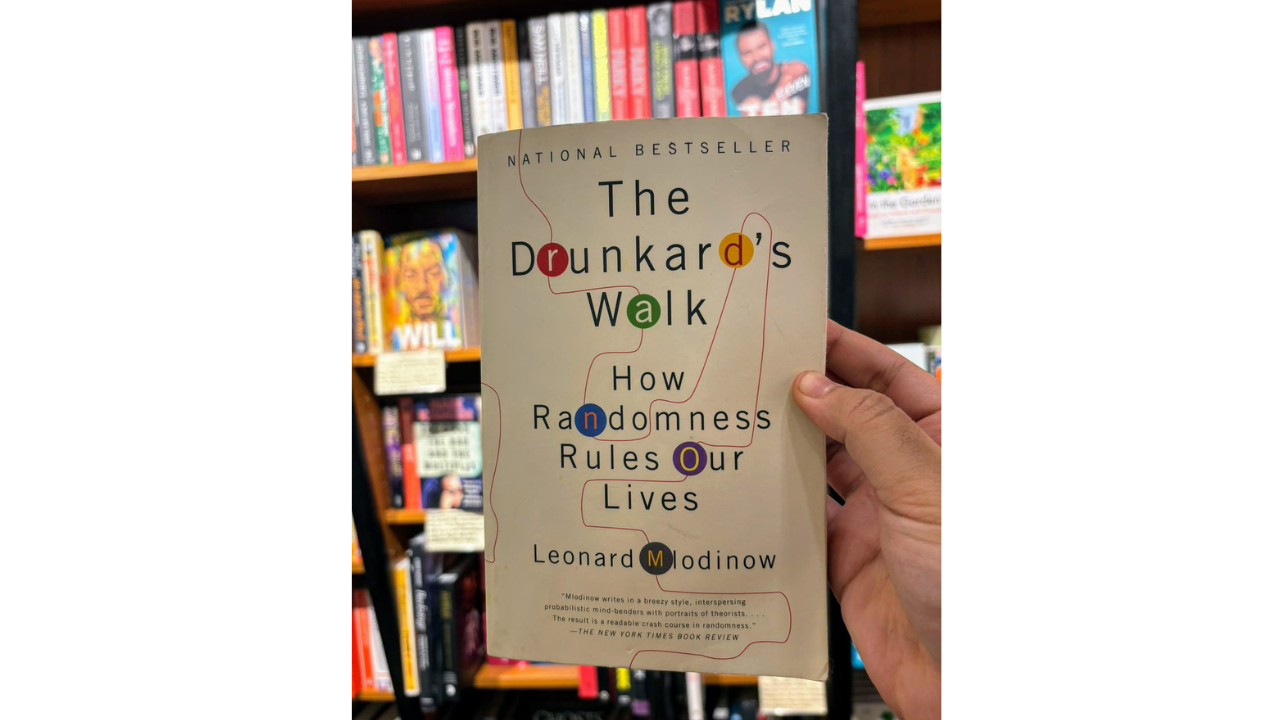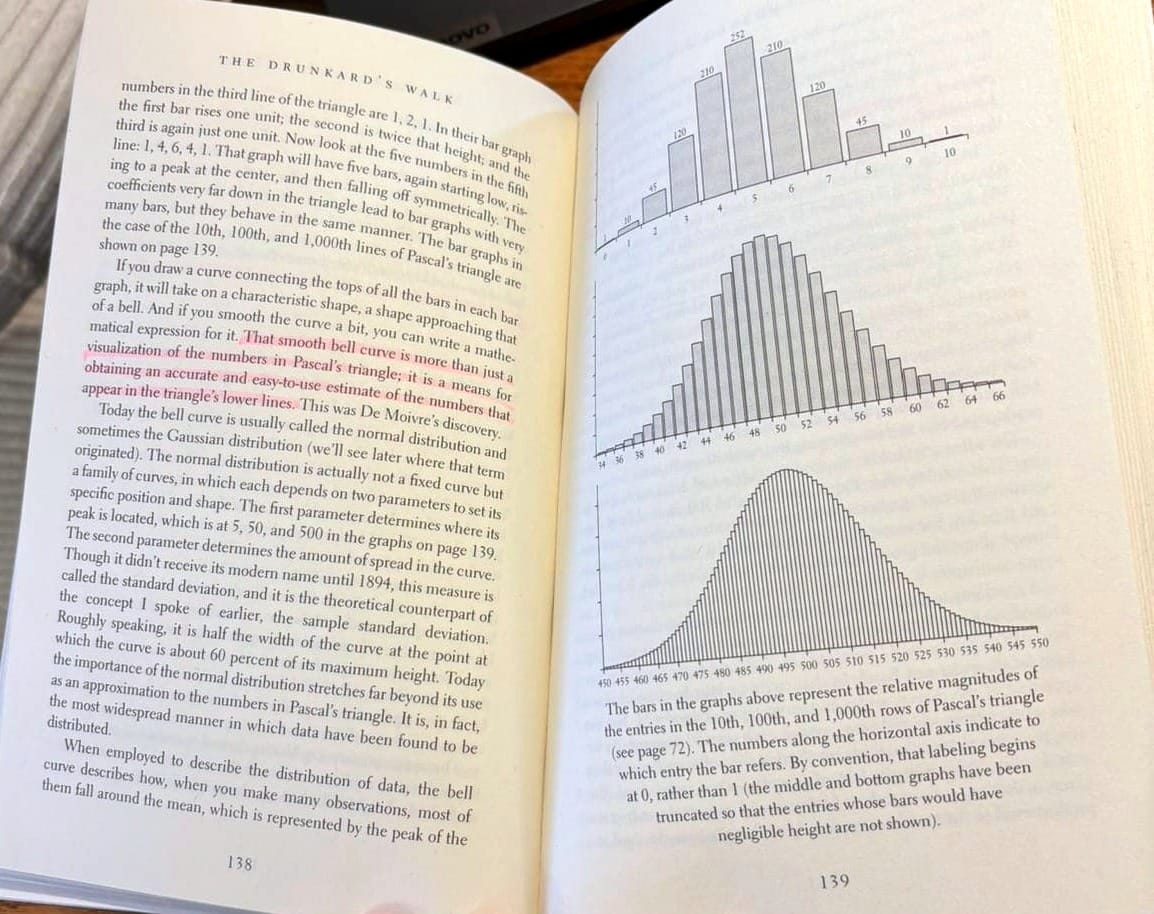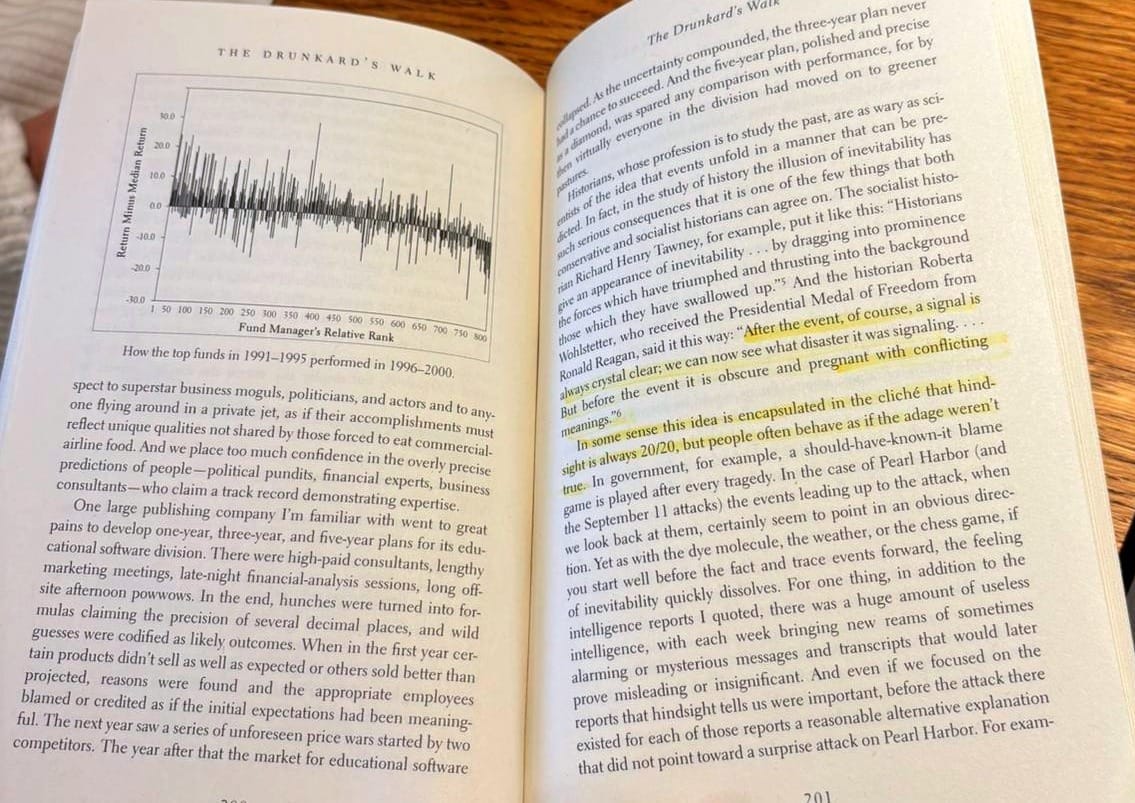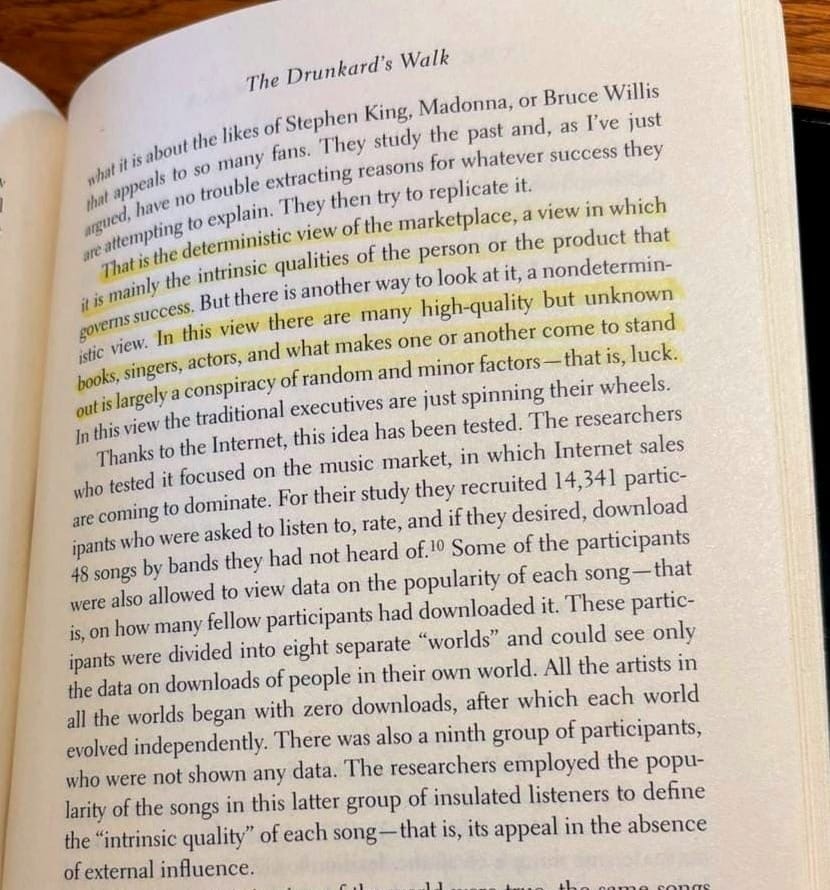Book Review - The Drunkards Walk: How Randomness Rules our lives

The book was just waoo!
Why I read this book?
I wanted to read a book well connected to the depth of statistics but is not a classic statistics textbook. A book that goes out and speaks about statistics through the roots. This book was just that book - it has the simplicity of a fundamental read but has the complexity of gauging where and how the laws of statistics developed. This book does not just explain the law of large numbers, but explains where it stems from, who and when developed it. Similarly other theories of statistics including the pascal's triangle, regression around the mean, Bernoulli's theorem are explained through the angle of randomness.
The world, our world, your world constantly works on finding structure through the different variances of life. What had happened was due to the events that had happened in the past? But, did it? Was it really that structured like a mathematical equation?
What I learnt from the book?
The book deep dives into the randomness aspect of our lives. The things that happen with the world are a result of constant result of evolution - evolution of randomness. Humans are able to explain a part of that randomness through theories, frameworks and equations. However, a lot is still random and it always will be. There might or might not be any explanation to it. There is a little correlation between past and future, other's lives and our lives. So when a difficult situation comes across, there is a definitive chance that the exact same situation had never been created, neither it can ever be. Think of it this way - two people might face the same situation but given their past, perception and thinking is so different that it might be very difficult to map out the similarities of events. Below is the gist of what I gathered from the book:
1.) What I learnt is to constantly learn, evolve and thrive. The events of success are random and may or may not happen today. But, when they happen, we need to be ready, on the feet with openness.
2.) What I also learnt is how to view analytics problems through a lens of randomness. For example, when we have data, what we tend to do is fit a hypothesis or model and derive the results. We call it - insights generation across most of the organizations. However, these insights might fail if we tend to look at different situations. As George Box said - "all models are wrong, and some models are useful."
3.) "Chance is more fundamental concept than causality" This is a line from the book. Correlation and causality measures are human embedded behavior. A lot of us think in 1-dimension.
Since this happened, this might mean that....
4.) "Embrace order in chaos" - Isn't it so helpful in our lives? How about we make uncertainty a part of our lives. How about we start embracing it through the success and pitfalls. Think of it this way - collate the uncertainty and be so unstoppable that so many large uncertain events get collected. Once they collect, as justified through successful people as well as statistics - average event of this process would be success (isn't that too real?). This translates simply into the fact that if we are unafraid of failing, success will likely be our average event.
5.) The book's name comes from Einstein's paper published in 1905 regarding statistical physics. In scientific literature, it became his most cited work. He explained that "much of the order we perceive in nature belies an invisible underlying disorder and hence can be understood only through the rules of randomness." Randomness can perfectly explain our data and sometimes the patterns might look like patterns only by chance. There is one chapter in the book called "Illusions of patterns and patterns of illusions". Super interesting!
6.) Don't judge too quick - both people, data and patterns in data. Let me explain. "He succeeded since he worked to hard..." What about those who didn't succeed despite working that hard? Is there really a perfect pattern? No. There is an excerpt from the book that says "after the event, of course, a signal is always crystal clear; we can now see what disaster it was signaling. But before the event it is obscure and pregnant with conflicting meanings"
How do I feel after reading the book?
The book is ridden with so many examples. This book gives so many examples of psychological tests, statistical tests, real life example of people's stories to prove that randomness governs our lives. The story of most successful statisticians, scientists and technology tycoons is provided as a testimony of randomness.
I feel free. Randomness sets me free. It is not only statistically satisfying, but also satisfying from life context. The presence of randomness is a beautiful part of our lives which makes the immense possible events possible.
Apart from philosophical aspect, randomness makes me a better analytics professional. How? Deriving insights from data become easier when you keep in mind the possibilities of uncertain events governing the tail events. Isn't it what gives rise to the concept of outliers in the data? How do we handle outliers is a completely different topic but the sense of explaining the unexplainable is an art which comes post accepting that "anything is possible". How do you deal with those possibilities - do you accept it as a pattern or do you discard it completely depends on what you want to achieve.
There is no one answer. The world is not 1-Dimensional. We live in a 3-dimensional world. In fact, string theory of physics explained that the world is made of multiple other dimensions. This creates possibilities. Just immense possibilities.
Some examples of good reads from the book



